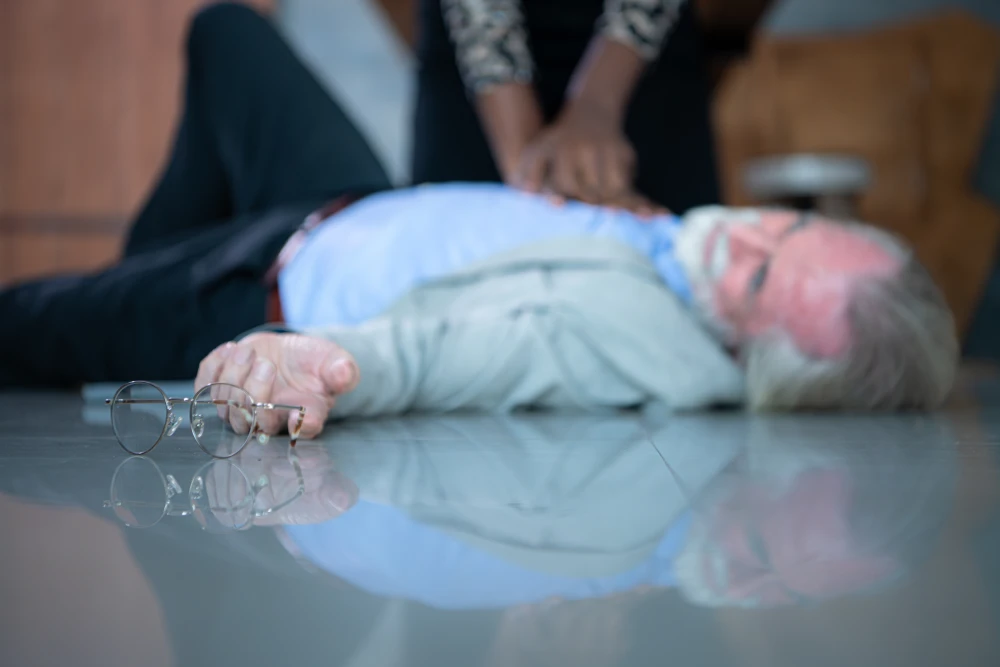Personal Injury Vs. Catastrophic Injury: The Key Differences
Injuries can range from minor to severe. The type, the severity, and the long-term effects of an injury are all factors that will determine the type of legal claim individuals can file and how much compensation they can seek. A personal injury usually lasts for a brief period. However, catastrophic injuries are considered life-changing and permanent.
What Is A Catastrophic Injury?
A catastrophic injury is a severe, permanent injury that prevents an individual from working or participating in other daily activities.
Catastrophic injuries have a massive impact on how a person may function and often lead to necessary transitions in lifestyle.
For an injury to be considered catastrophic, it must permanently alter the victim’s life. Some of the issues that may qualify a case as catastrophic include:
· Inability to return to work or maintain gainful employment due to the injury;
· Inability to take physical care of oneself due to the injury;
· Need for continuous medical care;
· Need for medical device assistance (wheelchair, crutches, or other devices);
· Need to make modifications to home and vehicles to accommodate the effects of the injury; and
· A family member or spouse may need to leave their job to provide continual care.
If you or a loved one has suffered a catastrophic injury in Louisiana, you deserve compensation for all your losses, including future expenses. At Bart Bernard Injury Lawyers, our lawyers help the injured in Louisiana establish the kind of injury they have and claim the total value of their damages.
Critical Differences Between Catastrophic Injury Cases and Other Personal Injury Cases
There are some significant differences between these two types of cases. Catastrophic injury claims often involve:
- Higher amounts of compensation.
- Different types of damages.
- Expert testimony from medical professionals, accident reconstruction specialists, occupational therapists, economic experts, etc.
- Detailed and careful settlement negotiations.
The Nature of Injury
A typical personal injury case arises when someone is injured through the fault of another person, but the injury may fail to rise to the level of a catastrophic injury.
A non-catastrophic injury can be painful but will heal relatively quickly with very few long-term consequences. Cuts, bruises, whiplash, lacerations, scars, some broken bones, and other minor injuries are generally considered non-catastrophic.
In a catastrophic injury, you might reach Maximum Medical Improvement (MMI) without regaining all of your pre-accident capabilities.
Injuries are catastrophic when they have severe and long-term effects. Some common catastrophic injuries include:
· Traumatic brain injury;
· Spinal cord injury;
· Paralysis;
· Amputations;
· Disfigurement;
· Disability;
· Severe burn injuries;
· Loss of senses, such as hearing, sight, sound; and
· Internal organ damage.
These life-altering injuries can result from different accidents, including car accidents, occupational accidents, slips and falls, and even assaults.
Damages
The most apparent distinction between an ordinary personal injury claim and a catastrophic injury claim is the amount of damages you are likely to seek.
Damages in catastrophic injury claims are often significant because the injury has severely impacted the victim’s life. Your lawyer will value all of your damages, including future expenses for ongoing care, modifications to your home or car, and the cost of necessary medical equipment.
You would not typically see some of these damages included in a standard personal injury case because the victim will eventually reach a full recovery.
In catastrophic injury cases, life expectancy is a significant driving factor of the value of each case. If these injuries occur early in a person’s life, these cases are significantly more valuable and, to some extent, more complex. Damages may be recovered not only for the victim but for their loved ones as well.
The families and loved ones of catastrophically injured individuals must make lifelong sacrifices to care for them.
A significant portion of the damage award may go toward compensation for intangible losses such as emotional anguish, pain, and loss of enjoyment.
Settlements And Verdicts
Because of the severe nature of catastrophic injuries, they often lead to more complicated legal battles and larger settlements or verdicts.
Catastrophic injury victims deserve much larger settlements for their damages, and insurance companies often delay or try to lower the value of the case. The mental and emotional impact on victims and their families has to be considered. Costs tend to add up fast, and a settlement is intended to help compensate for some short-term and long-term expenses.
The insurance company may dispute your claim and fight it to trial rather than agree to a high settlement.
If this happens, it will lengthen the time it takes to settle the case. However, this is always in the best interest of the client. It is far better to take more time to resolve the matter fairly than to accept an offer quickly and not have the money you need to cover your future medical care and expenses.
Louisiana has adopted a pure comparative negligence system. Under this system, all parties have to prove their side of the case and demonstrate their degree of fault. The application of comparative negligence can result in a longer and more complex trial process.
Evidence
Proving the catastrophic injury’s nature and cause usually involves collecting and analyzing a lot more evidence than you would necessarily need in a personal injury case.
Catastrophic injury cases usually require various experts to testify about what type of life the victim can expect after they reach the maximum improvement level for their injuries and what caused the injury.
The Recovery Period
The more severe the injury, the more time it takes to recover. Therapy, counseling, and medication are often necessary for someone with a catastrophic injury.
While standard injuries can take weeks or months, a total recovery from a catastrophic injury usually does not happen.
You may be able to get back a semblance of your life as it was, but life after a catastrophic injury will never be the same.
The Prescriptive Period (Statute Of Limitations) In Louisiana
Some catastrophic injuries do not show or become apparent at first. While the standard statute of limitations may only provide the person with one year from the date of injury to initiate the claim in Louisiana, delayed diagnosis can extend this time immensely.
Other issues may also halt this time entirely, such as mental limitations, incapacity, or inability for the individual to hire a lawyer to begin the claim.
Bart Bernard Injury Lawyers – Our Resolute Lawyers Know How To Handle Catastrophic Injury Cases In Which the Stakes Are High
Louisiana personal injury attorney Bart Bernard possesses extensive trial experience and skill, a thorough understanding of the complex medical issues involved in catastrophic injuries. He is fluent with the facts and legal principles from precedent personal injury cases on which cases are often decided. His proficiency in formulating and presenting arguments persuasively in court often deters insurance companies from taking a case to trial.
Bart Bernard Injury Lawyers has been securing compensation for personal injury victims in Louisiana for more than twenty-five years. Suppose you’re getting the run-around from your insurance company or feel your best interests are not being considered. In that case, our Louisiana personal injury law firm will help you seek the compensation you deserve and hold liable parties accountable for your damages.
Contact us today for a free case evaluation.




